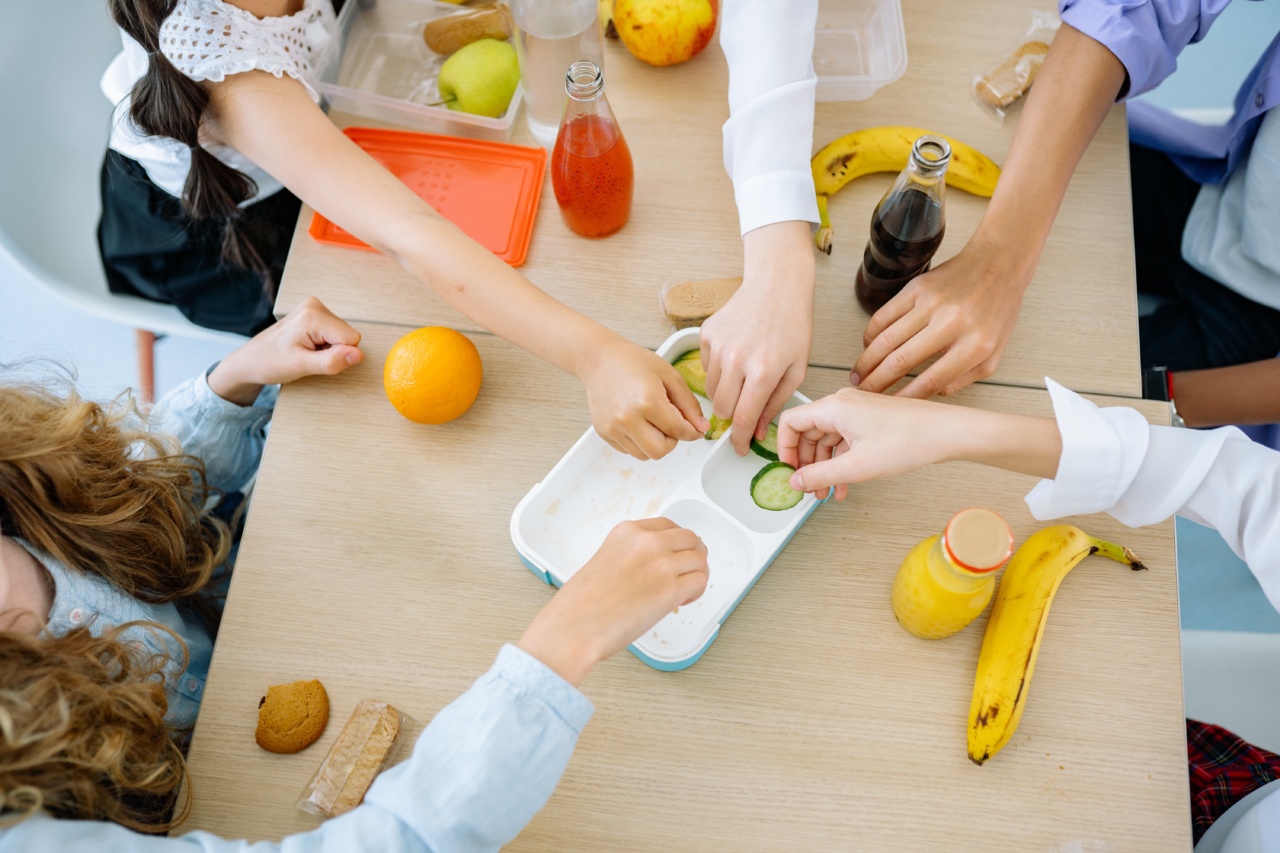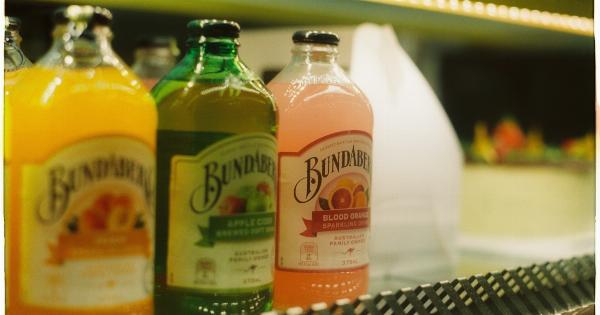Fruits and juices are often touted as healthy choices due to their abundance of vitamins, minerals, and antioxidants.
However, it’s important to be aware that some fruits and juices contain hidden sugars, which can contribute to health issues if consumed in excess. In this article, we will highlight 30 fruits and juices that are commonly consumed and reveal their hidden sugar content.
1. Mango
Mangoes are undoubtedly delicious, but they are also high in sugar. A medium-sized mango contains around 45 grams of sugar, which is equivalent to about 11 teaspoons of sugar.
While mangoes offer benefits like vitamin C and fiber, it’s crucial to consume them in moderation.
2. Grape Juice
Grape juice may seem like a healthy choice, but it can pack a significant amount of sugar. A cup of grape juice contains around 36 grams of sugar. Opt for whole grapes instead, which provide the added benefits of fiber and chewing satisfaction.
3. Watermelon
Watermelon is a refreshing fruit to enjoy during hot summer days. However, be aware that it contains about 9 grams of sugar per cup. Moderation is key when indulging in this juicy treat.
4. Orange Juice
Orange juice is known for its high vitamin C content, but it also contains quite a bit of sugar. An 8-ounce glass of orange juice contains around 21 grams of sugar. It’s best to consume whole oranges, as they offer additional fiber and nutrients.
5. Cherries
Cherries are a tart and sweet fruit that adds a burst of flavor to various dishes. However, they contain around 18 grams of sugar per cup. Eating them in moderation is advisable due to their sugar content.
6. Pineapple Juice
Pineapple juice may taste tropical and refreshing, but it can contain a high amount of hidden sugars. A cup of pineapple juice contains about 25 grams of sugar. Limit your intake and opt for whole fresh pineapple whenever possible.
7. Pomegranates
Pomegranates are known for their vibrant red color and antioxidant properties. However, they are also relatively high in sugar, with one medium-sized pomegranate containing around 39 grams of sugar.
Enjoy pomegranates in moderation and balance their consumption with other lower-sugar fruits.
8. Cranberry Juice
Cranberry juice is often consumed for its potential urinary tract health benefits. However, it’s crucial to note that it can contain added sugars to enhance its flavor. A cup of cranberry juice cocktail can contain around 35 grams of sugar.
Opt for unsweetened cranberry juice or consume whole cranberries instead.
9. Bananas
Bananas are a convenient and popular fruit, but they are higher in sugar compared to many other fruits. A medium-sized banana contains approximately 14 grams of sugar.
While bananas also provide essential nutrients like potassium, it’s essential to consume them in moderation.
10. Apple Juice
Apple juice is a common juice option for many people, especially children. However, it can contain a surprisingly high amount of sugar. A cup of apple juice contains around 24 grams of sugar.
Opt for whole apples, which offer more fiber and chewing satisfaction.
11. Grapes
Grapes are a popular fruit and can be enjoyed fresh or turned into juice. However, one cup of grapes contains around 23 grams of sugar. Enjoy grapes in moderation and pair them with a source of protein or healthy fat to balance blood sugar levels.
12. Grapefruit Juice
Grapefruit juice is often considered a diet-friendly option due to its low calorie content. However, it still contains about 21 grams of sugar per cup. If you enjoy grapefruit, opt for the whole fruit, as it offers more fiber and nutrients.
13. Kiwi
Kiwis are small and vibrant fruits that are packed with vitamin C. However, they contain about 13 grams of sugar per medium-sized fruit. Incorporate kiwis into your diet in moderation and balance their consumption with lower-sugar fruits.
14. Mango Juice
Similar to fresh mangoes, mango juice can contain considerable amounts of sugar. A cup of mango juice may contain around 26 grams of sugar. It’s best to consume mangoes in their whole form or enjoy small amounts of fresh juice occasionally.
15. Papaya
Papaya is a tropical fruit that offers a variety of health benefits, including digestive support. However, it’s worth noting that it contains around 11 grams of sugar per cup.
Incorporate papaya into your diet in moderation and enjoy it with other fiber-rich foods for a balanced meal.
16. Apple
An apple a day keeps the doctor away, but it also contains sugar. A medium-sized apple contains about 19 grams of sugar.
While apples offer fiber and nutrients, it’s essential to consume them in moderation, especially if you have diabetes or are watching your sugar intake.
17. Pear Juice
Pear juice is often marketed as a healthier alternative to other fruit juices. However, it can contain a significant amount of sugar. A cup of pear juice may contain around 25 grams of sugar. Opt for whole pears whenever possible for added fiber.
18. Blueberries
Blueberries are known for their antioxidant properties and are often promoted as a superfood. While they offer numerous health benefits, blueberries also contain around 15 grams of sugar per cup.
Enjoy them in moderation and pair them with protein or healthy fats to balance your blood sugar.
19. Pear
Pears are a sweet and juicy fruit that can be a healthy addition to your diet. However, they also contain about 17 grams of sugar per medium-sized fruit. Moderation is key, especially if you are trying to manage your blood sugar levels.
20. Peach
Peaches are juicy and delicious, making them a popular summer fruit. However, they contain about 13 grams of sugar per medium-sized fruit. Enjoy peaches in moderation and balance them with non-starchy vegetables or protein sources in your meals.
21. Pear nectar
Pear nectar is a sweet and flavorful beverage made from pureed pears. However, it can contain a high amount of hidden sugars. A cup of pear nectar may contain around 34 grams of sugar.
It’s best to limit your consumption and opt for whole pears instead.
22. Strawberries
Strawberries are a popular fruit due to their sweet taste and versatility. While they offer various health benefits, strawberries also contain around 7 grams of sugar per cup. Enjoy them in moderation and pair them with other nutrient-dense foods.
23. Apricot
Apricots are small, golden fruits that are packed with vitamins and minerals. However, they contain about 3 grams of sugar per fruit.
While the sugar content is relatively low, moderation is still advised, especially if you are watching your sugar intake.
24. Apricot Juice
Apricot juice is a flavorful option that can be enjoyed on its own or used as a base for smoothies. However, it may contain added sugars to enhance its taste. Check the label and opt for unsweetened versions or enjoy whole apricots instead.
25. Raspberry
Raspberries are tart and sweet, making them a popular addition to various dishes. While they are low in calories and offer fiber, they still contain about 5 grams of sugar per cup.
Enjoy raspberries in moderation and incorporate them into well-balanced meals.
26. Tomato Juice
Tomato juice is often consumed as a savory beverage, but it can also contain added sugars. A cup of tomato juice may contain around 10 grams of sugar. Opt for low-sodium and no-sugar-added varieties or enjoy fresh tomatoes instead.
27. Blackberries
Blackberries are rich in antioxidants and can be a tasty addition to your diet. However, they still contain about 7 grams of sugar per cup. Enjoy blackberries in moderation and pair them with other low-sugar fruits.
28. Guava
Guava is a tropical fruit that is packed with vitamin C and fiber. However, it contains about 9 grams of sugar per medium-sized fruit. Moderation is key when incorporating guava into your diet.
29. Blackcurrant Juice
Blackcurrant juice is enjoyed by many for its unique sweet and tangy flavor. However, it can contain added sugars. Check the label for no-sugar-added versions or consider incorporating whole blackcurrants into your meals for added fiber.
30. Passion Fruit
Passion fruit is an exotic fruit with a distinct and refreshing flavor. While it’s relatively low in sugar compared to other fruits, one passion fruit still contains about 3 grams of sugar. Enjoy passion fruit as part of a well-balanced diet.






























